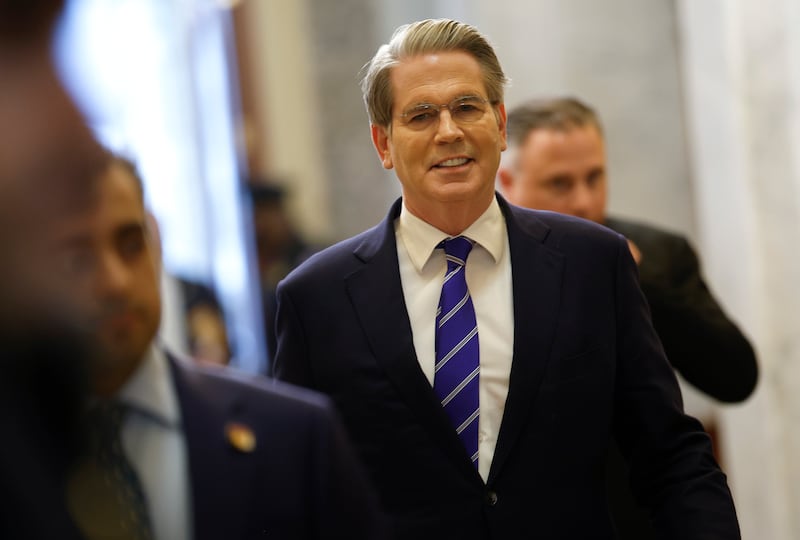President Donald Trump radically softened some of his most severe rhetoric after CEOs of the nation’s biggest retail chains warned him of looming price rises and empty shelves.
The CEOs of Walmart, Target, and Home Depot met privately with Trump on Monday and told him that although prices were steady at that moment, his trade policies could have devastating effects within just two weeks with supply chains disrupted, Axios reported.
“This wasn’t about food. But he was told that shelves will be empty,” a source told the outlet.
The president was also reportedly spooked by investors’ reaction to his threats to Fed Chair Jerome Powell. Stocks, bonds, and the dollar all slumped this week—until Trump abruptly toned down his rhetoric.

He told reporters on Tuesday he didn’t plan to play hardball with China, and that he was confident the two countries could strike a deal that would bring the tariffs well below their current levels.
He also said he had “no intention” of firing Powell, even though his top economist, Kevin Hassett, said last week that Trump and his team were studying how to do so.
The changes reportedly come as Treasury Secretary Scott Bessent has been able to exert a stronger influence on Trump. Bessent has called for more targeted tariffs, while Commerce Secretary Howard Lutnick has encouraged Trump to be as aggressive as possible with the duties.

When other advisers aren’t around, Bessent rushes the Oval Office to lobby Trump to take a more market-friendly approach, according to Axios.
This week, the International Monetary Fund warned that Trump’s economic policies had caused a “major negative shock” to growth in the global financial system.
The president announced a “Liberation Day” on April 2 as he unveiled universal 10 percent tariffs against all products entering the U.S. from other countries. Additional tariffs were added for products from countries that have trade deficits with the U.S.
The duties are an import tax paid by American companies, with the added costs typically passed on to consumers. Other countries have vowed to retaliate against the measures, including China, which hit all U.S. products with its own 125 percent tariffs.
The trade wars have sent global stock markets tumbling—wiping out trillions of dollars in value—and even shaken the usually stable U.S. bond markets.

Some financial authorities are consequently fearful that the U.S. is heading toward recession. Trump was reportedly unfazed by the prospect of a recession but privately expressed concern that his tariffs could lead to a more severe depression before he agreed to halt levies on dozens of countries for 90 days.
The duties on Chinese products, however, remain in effect.

